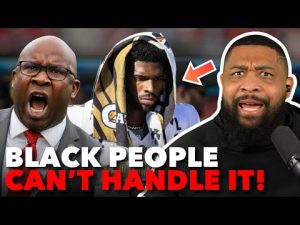A fresh debate is brewing in America, and it’s not just about what to put on the grill for the Fourth of July. The U.S. Citizenship and Immigration Services (USCIS) has announced a controversial new policy that will have immigration applicants’ social media scrutinized for antisemitism. Yes, you read that right! The Department of Homeland Security (DHS) is taking a stand against potential terrorist sympathizers, insisting that there is “no room” in the United States for individuals who may harbor dangerous ideologies.
The government’s move is part of an effort to ensure that those wishing to work or reside in America are not sympathetic to causes that threaten the safety and security of the country. A representative from the DHS emphasized that the United States is under no obligation to allow anyone who might pose a risk to remain. It’s a strong message indicating that national security and public safety are being prioritized. However, this announcement has not gone over well with everyone.
Enter the Foundation for Individual Rights and Expression, a group fiercely advocating for free speech. They argue that surveilling the social media of visa and green card holders based solely on their expressions is an attack on individual rights. The group strongly believes that America’s commitment to free and open discourse is being traded for a climate of fear and silence. In their view, monitoring social media posts for dissenting opinions is a slippery slope that could erode the freedoms Americans hold dear.
In a recent discussion, Harvard Law School’s professor emeritus weighed in on the matter, pointing out that there is a nuanced distinction between green card holders and full U.S. citizens. While green card holders are afforded certain free speech rights, their residency can come with strings attached, especially if it means keeping an eye on social media for potential threats. The professor suggested that, while it is important to protect Americans, the balance of rights and responsibilities needs careful consideration.
On one hand, there’s the imperative to protect American citizens from those who might engage in violence or spread harmful ideologies. On the other hand, there’s the fundamental principle of free speech that enshrines the right to express even controversial opinions. Accordingly, the upcoming months and years promise to be filled with robust legal debates over immigration policies, privacy rights, and free speech, not just in courtrooms, but in public discourse as well.
As tensions rise and opinions diverge, it’s clear that this new scrutiny over social media isn’t just a passing trend. It reflects deeper societal concerns about safety in an increasingly interconnected world, where one person’s right to express themselves can sometimes tangle with the safety of the collective. Will the legislative actions and court decisions that follow strike the right balance? Only time will tell, but one thing is for sure—this is a conversation America must not shy away from.







